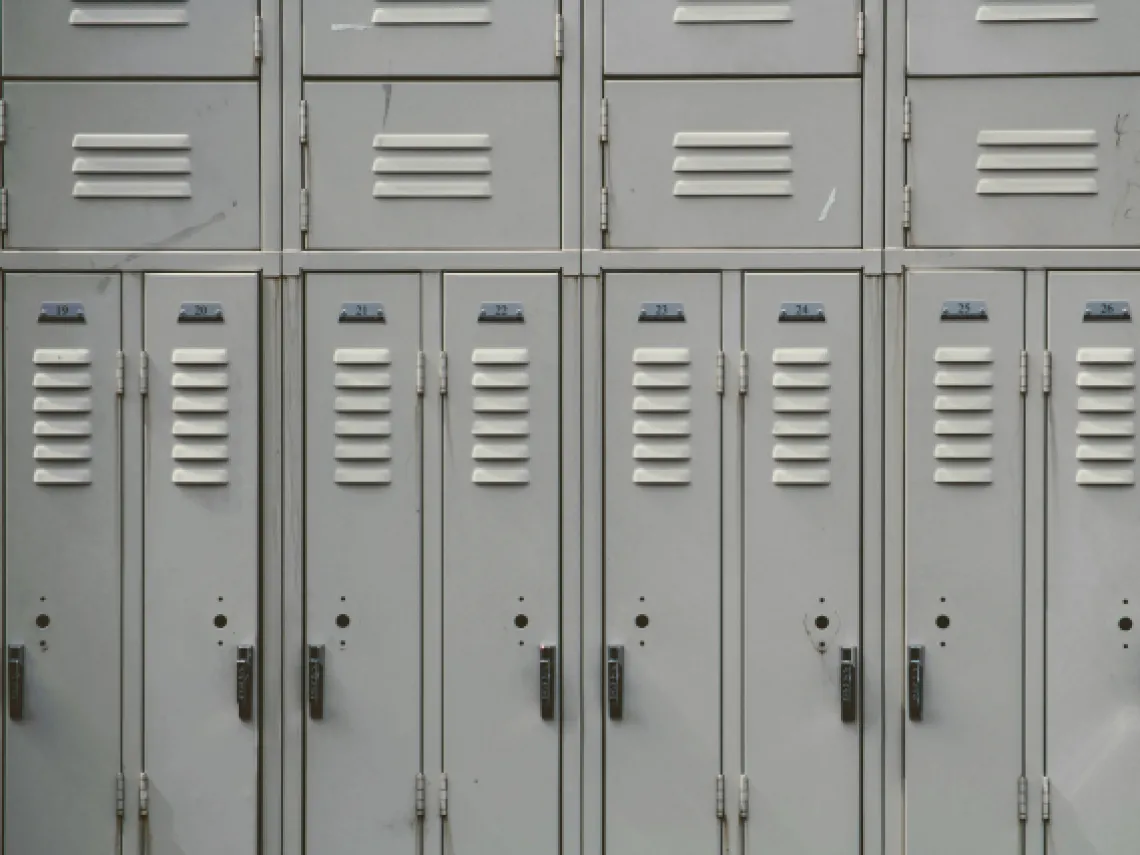New Research from Professor Diana Newmark Highlights Issues with Due Process in School Discipline Cases
“The school-to-prison pipeline is well researched and shows that school discipline and zero tolerance policies can have a huge impact for many students."

It is a foundational principle of education that every student has the right to learn in a supportive and safe environment. However, exclusionary school discipline policies, like suspension and expulsions, contradict these ideals and instead push kids out of the classroom.

Students have lost millions of days of instructional time due to out of school suspensions. Despite the Supreme Court ruling in Tinker v. Des Moines that students do not “shed their constitutional rights at the schoolhouse gate,” most students who find themselves in these situations see that their right to due process is largely illusory in practice, creating a system that undervalues the interest a child has in attending school and overestimates a school’s capacity to handle issues of discipline fairly. That is the argument being made by University of Arizona James E. Rogers College of Law Associate Clinical Professor of Law Diana Newmark in an upcoming paper set to be published by the William & Mary Bill of Rights Journal and the focus of her research and clinical work over the past few years.
Newmark, who directs University of Arizona Law’s Education Advocacy Clinic, has spent her career advocating for the rights of children, first as special education teacher, then as a lawyer for the Children’s Law Center in Washington, D.C. and the Legal Aid Society in the Bronx, New York, where she represented court-involved children in school discipline and special education matters.
“The school-to-prison pipeline is well researched and shows that school discipline and zero tolerance policies can have a huge impact for many students, particularly students of color,” commented Newmark in a recent presentation at the William & Mary Law School Bill of Rights Journal Symposium which focused on constitutional issues within educational spaces. “And in addition to all of that, kids involved in other legal systems can have significant collateral consequences to school discipline – leading to disrupted foster home placements, violations of juvenile probation and even deportation.”
A Fair Shot of Being Heard
Fueled by zero tolerance policies and the presence of police officers in schools and made worse by school funding cuts that overburden administrators and teachers and the increased anxieties around violence at school, these excessive practices have resulted in the suspensions, expulsions, and arrests of tens of millions of public-school students, even students as young as five.
While the Supreme Court ruled that students facing suspensions and expulsions have a right to due process, the court has been reluctant to specify what process is due. Lower courts, to some extent, have filled in those gaps, but the lack of case law in this area has made rulings inconsistent across the country leaving states and districts to designate their own procedures.
In Arizona, for example, state law allows districts to honor the disciplinary decisions of other schools, and many districts have explicit policies preventing enrollment of a student who has been suspended or expelled elsewhere. Expulsion from one school can mean expulsion from all – leaving students at the risk of becoming alienated from their peers and falling behind in their education and parents or guardians scrambling to find sufficient childcare.
“Goss v. Lopez says that students have a right to due process in school discipline, and Mathews v. Eldridge talks about factors that should be considered in determining how much process might be due for a particular proceeding. But to the extent that these cases form the underpinning for how we figure out what kids are entitled to receive, they really miss the mark,” explained Newmark. “Courts often undervalue the child's interest in attending school and overestimate a school’s inclination or capacity to adjudicate discipline issues fairly and in our experience in the clinic that just isn't always the case.”
Newmark’s research further highlights the inadequacy of the due process protections that have been established for most school discipline cases. Whether it be the limited notice before a suspension hearing, the type of evidence provided by the school to sustain their decision, including a heavy reliance on hearsay and redacted witness statements, or the short window to appeal a decision, it can be difficult for a student to feel like they have a fair shot at being heard.
A Path Forward
At issue now is how the process can be improved. Newmark argues that the path forward is paved with more case law.
“More attorneys practicing in this area can help,” said Newmark. “There is an access to justice issue, and many children’s law offices representing kids in other legal systems aren’t able to provide representation in discipline matters. More attorneys here would help enforce the minimal procedures that already do exist and litigate due process issues that arise.”
But there is also work to be done on a systemic level. States can codify due process protections into state law and school districts can adopt policies that increases these protections. Lessons can be learned from other student protection statutes like the Individuals with Disabilities in Education Act that established numerous procedures and regulations which ensure special education students are not excluded from learning even if they violate discipline codes. In the meantime, clinics, like the one led by Newmark, will continue to represent students for whom the laws are not so clear.
“Sadly, kids do things that are harmful in schools,” noted Newmark. “But when we use suspensions and expulsions, particularly when there's very wobbly due process, we leave kids in a situation where they might be unfairly disciplined, and we limit opportunities for them to grow and learn and make positive changes.”
